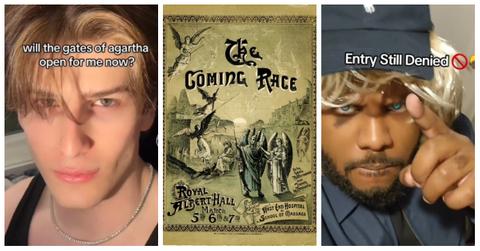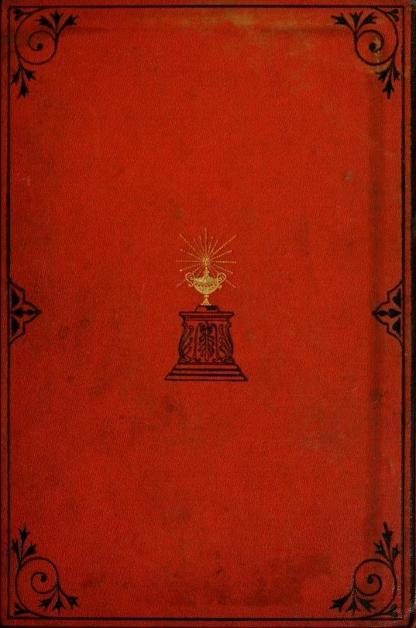The Meaning of "Vril" Is Either Good or Very, Very Bad, Depending on Who You Ask on TikTok
While some believe "vril" is just a Westernized version of "chi," the book from where it originates is deeply problematic.
Published April 12 2025, 1:52 p.m. ET
When it comes to words in the common lexicon, people have different perspectives on them depending on a number of factors, including socioeconomic status, life experiences, race, and other contributing life variables. This means that two people can hear a word and have completely different perspectives on whether that word is "good" or "bad."
Such is the case with TikTok's new buzzword, "vril," which isn't actually a new word at all. According to some on TikTok, the word has a great and positive meaning. Yet, with a quick dive into the word's origins and the way it's often applied, a darker and more disturbing perspective starts to emerge.
So what is the meaning of "vril?" Here's what we know.
What is the meaning of "vril" on TikTok?
If you do a quick search for "vril" on TikTok, you'll find a confusing and conflicting collection of videos. In some videos, people will talk about their "vril," their "life force." It's often likened to "chi," which is a word used in Eastern medicine and spirituality to mean a "vital energy that is held to animate the body internally," according to Merriam-Webster.
You'll find it said alongside words like "Agartha" or "Hyperborea," and sometimes Atlantis or "The Coming Race."
Agartha is a fictional subterranean society written of first in "Les Fils du Dieu" (The "Sons of God") in 1873 by French writer, Louis Jacolliot, according to Discovery UK. This concept was later explored in the book "The Coming Race," by Edward Bulwer-Lytton in 1871.
The book, which would otherwise be an interesting sci-fi book about a subterranean perfect society, comes from an author known for his racist, misogynistic, and dangerous views. The beings in the book, Vril-ya, are described as an Aryan "master race."
The book and the culture within, including "vril" and the Vril-ya, are linked with eugenics and Nazi ideology. It's considered "occult," and some believe the vril-ya actually exist somewhere beneath the surface of the Earth.
While some will try to paint it as a "Western chi," the connection with Bulwer-Lytton's disturbing beliefs are too strong to ignore.
Why is "vril" so divisive?
So why is it that no one can seem to agree on whether this is just positive spirituality, or dangerous Nazi ideology?
The divide probably comes down to the fact that the people who promote "vril" either don't understand the dangerous roots of the term or they genuinely believe they're justified in using it.
On TikTok, users have made videos mocking the concepts.
In one video, a person who has apparently recently dyed their hair blonde poses for a video and asks, "Will the gates of Agartha open for me now?"
Another TikToker responds with a video of himself, a Black man, wearing a blonde wig and blue eye effects, saying, "Entry still denied."
While the TikTok videos mocking "vril" and "Agartha" are often pretty tongue in cheek, they're masking a deeper concern that people continue to embrace the Aryan philosophy, touted most widely by Adolf Hitler and the Nazis, which promotes a righteous "master race" comprised of white, blue-eyed, blonde-haired people, according to Britannica.
Is it possible to de-couple the concept of "vril" from the problematic author who coined it? It seems unlikely, and since there are alternative words for "life force" which have much more positive connotations, such as chi, it seems like a word best left in the 1800s.

